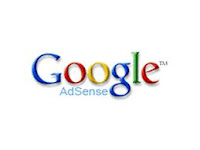When Google's AdSense appeared, there were a lot of people
who doubted Google's idea would be marketable and actually generate any income.
Yet as we stand here today it's probably the most well known pay per click
venture in the world.
Yes, all those nay sayers ended up eating their own words in
the end. And that is because the folks at Google never go and do something
without assessing whether or not it will be profitable, or exactly how
profitable it is.
But of course, as you might very well know, AdSense isn't
just profitable for Google. It's also profitable for the people who advertise
via AdWords and very profitable for publishers who use it to make earnings
which are sometimes just enormous.
So one must ask himself why this is such a good deal for everybody.
And the question in itself is very justified because you hardly ever come
across something that's profitable for everyone in the chain. So why would
AdSense be any different.
Well, AdSense is where it stands today, giving benefits for
everybody in the game because it exploits a gap in the Internet's advertising
model.
You see, the Internet is a very interactive environment, and
its interactions come from the people who are browsing. They choose whether or
not to follow a certain link and the term "navigating" is probably
the most precise one at describing this situation.
So AdSense is great because it links together buyers and
sellers. Yes, you have to hand it out to Google for a brilliant idea. They know
there are people out there that want to buy stuff and people who want to sell
them what they're interested in. And Google AdSense helps members of the two
categories find each other.
It works for the visitors, because the model is very
transparent. You don't see a huge graphic banner which tries to lure you into
buying something. You just see a few words. And if you like what you see you
can just click it. It works because visitors don't have that feeling of someone
trying to lure them into spending money. Ironically, however, they're wrong.
It works for the AdWords advertisers because their ads go
everywhere. Not only will they find themselves listed in Google's search which
gets gazillions of hits per day, up front without working as much for SEO and
waiting so much.
Their ads can reach any website that deals with anything
similar to what they're trying to sell. Now you must understand they could
never pull of such great advertising by themselves. And that brings us to the
thing that makes Google's AdSense a publisher's best friend.
It comes from the fact that the ads are contextual, that
they somehow related to the keywords you deal with on your page. Because people
or on your site, which deals with a certain topic, you already know they're
interested in that topic.
But, hey, wait a minute, Google knows some companies which
want to sell your visitors something related to their topic. Google wants your
visitors, you want Google's advertisers and the visitors just want to buy
stuff. And that is the essence of what makes AdSense a great deal for everybody.
This is by far the most profitable hook-up deal you're ever
going to see anyplace on the Internet.
So you have to appreciate Google for realizing a killer
deal. You have to appreciate how well thought out, yet simple this scheme
really is. Sure, in practice it has a few quirks but those are minor and, up to
this point everybody seems to be enjoying Google's AdSense.



